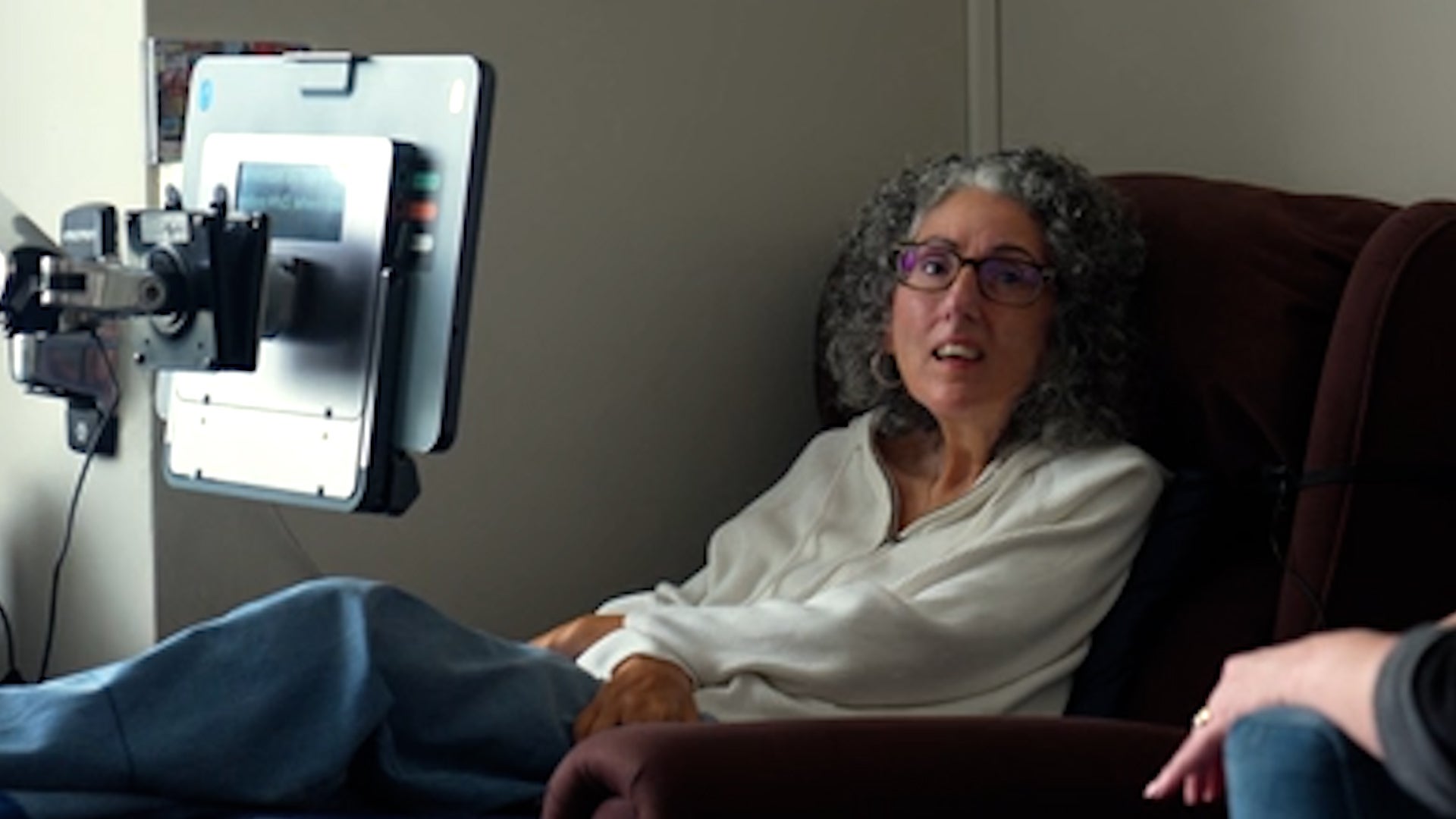A woman who lost the ability to speak after she developed motor neurone disease (MND) 25 years ago has finally regained her voice with the help of AI and an old videotape.
Sarah Ezekiel was left unable to talk or use her hands due to the neurological condition that affects the brain and spinal cord, just months after becoming a mum for the second time in 2000, aged just 34.
Her children Aviva and Eric had only ever heard her speak through a machine, which had an emotionless, robotic tone.
Now, two decades later, her voice has been recreated using artificial intelligence from an eight-second snippet of her real voice taken from a scratchy VHS tape.
“After such a long time, I couldn’t really remember my voice. When I first heard it again, I felt like crying. It’s a kind of miracle,” she told the BBC, using eye-gaze technology which allows her to type by tracking her eye movements across a screen.
Ms Ezekiel got her AI voice when Bristol-based assistive technology company, Smartbox, asked for an hour’s worth of audio to recreate it.
But because she had lost her ability to speak before the creation of smartphones, all she had was a mumbled eight-second clip of her speaking on a videotape. However, the clip was just enough.
Simon Poole from Smartbox recalled his heart sinking when he received the short clip. But he played around with it and looped it through the latest AI-voice technology that uses thousands of voices. It was able to fill in the gaps and predict where a voice, like Ms Ezekiel’s, might go with its intonation.
Ms Ezekiel was a Londoner who had worked as a personal assistant. She was married with a toddler and expecting her second child when her speech started to slow and she started to feel weakness in her left arm.
She was diagnosed with MND - a degenerative condition which causes muscle weakness, with about 1,000 people diagnosed in the UK every year. The condition can be life-shortening, and according to the NHS, most of those affected will lose the ability to speak.

Her marriage ended soon after her diagnosis, leaving her to rely on 24-hour care for her and her children. The mother of two battled feelings of isolation because she was unable to communicate.
Eventually, after five years of living with the condition, she was able to use eye-gaze technology to type and speak with a synthetic voice, like the physicist Stephen Hawking.
But with the help of AI, she now has her accent back - which she said is better than sounding like a robot.
Ms Ezekiel joked: “I was very posh and people didn’t know I was [really a] cockney with a slight lisp.”
Her son Eric said his mother’s new AI voice has made the family closer as she can now express emotions and show when she is happy, sad or angry.
Her daughter Aviva explained that hearing her mother’s voice was “amazing” and said she can now feel who she is as a person. "Mum isn't just a disabled person in the corner with a robot that doesn't relate to her,” she said.
Why scientists believe the simple life is more likely to be a happier life
Number of people living with cancer to hit record of 3.4 million this year
MRI scan could fast-track patients for bladder cancer treatment, study finds
Age ‘waves’ could change how you live. Here’s what scientists say
Woman who beat breast cancer twice inadvertently furthers long Covid research
Pigs and human organs: The groundbreaking study setting the science world alight







